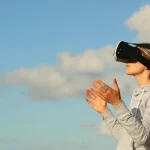In a world dominated by 24/7 news cycles, social media platforms, and a constant stream of digital content, navigating the media landscape has become more complex than ever before. Imagine a parent scrolling through social media, unsure whether to trust a post about a new health trend, or a student grappling with misinformation while researching for an assignment. These scenarios underline a growing need for media literacy—a skill set essential for individuals of all ages. But how does media literacy education benefit everyone? Let’s explore the far-reaching impacts of this vital education.
What Is Media Literacy?
Before diving into the benefits, it’s important to define media literacy. Media literacy is the ability to critically analyze, evaluate, and create media in various forms. It empowers individuals to discern facts from misinformation, understand the motives behind content, and participate thoughtfully in a media-saturated world.
Media literacy education teaches these skills through structured lessons, often emphasizing critical thinking, digital citizenship, and ethical media engagement.
Benefits of Media Literacy Education
1. Empowers Critical Thinking
One of the most significant benefits of media literacy education is its ability to cultivate critical thinking skills. In a study conducted by the National Association for Media Literacy Education (NAMLE), 85% of educators reported that media literacy programs helped students improve their ability to analyze and evaluate information critically.
Critical thinking enables individuals to:
- Identify biases in media content.
- Differentiate between credible and non-credible sources.
- Recognize persuasive tactics and misinformation.
By fostering these skills, media literacy education equips people to make informed decisions rather than passively consuming content.
2. Reduces the Spread of Misinformation
In the digital age, misinformation spreads faster than ever. A study published in Science found that false news stories are 70% more likely to be retweeted than true ones. Media literacy education addresses this issue by teaching individuals to verify sources, cross-check facts, and question the intent behind media messages.
For example, many schools now incorporate fact-checking tools like Snopes and FactCheck.org into their media literacy curricula. By equipping people with these tools, media literacy education acts as a frontline defense against the viral spread of false information.
3. Enhances Digital Citizenship
Media literacy education also plays a crucial role in promoting responsible digital citizenship. Digital citizenship involves:
- Respecting others online.
- Understanding privacy and data protection.
- Engaging in ethical behavior on digital platforms.
Educated digital citizens are less likely to engage in cyberbullying, fall for phishing scams, or share inappropriate content. Schools and workplaces that integrate media literacy programs often see improvements in online etiquette and reduced instances of harmful online behavior.
4. Prepares Students for the Workforce
In today’s job market, media literacy is a valuable skill. A report by the World Economic Forum listed critical thinking and media analysis among the top skills required for the future workforce. From marketing and journalism to public relations and education, many careers require the ability to analyze and create media effectively.
Media literacy education prepares students by teaching them:
- How to create compelling digital content.
- How to use social media responsibly and professionally.
- How to navigate complex media environments in a globalized economy.
Employers increasingly value candidates who can think critically about media and communicate effectively across various platforms.
5. Strengthens Democracy
An informed citizenry is the backbone of any democracy. Media literacy education empowers individuals to:
- Evaluate political messages.
- Understand the role of media in shaping public opinion.
- Make informed voting decisions.
Research from the Pew Research Center indicates that individuals with higher media literacy are more likely to participate in civic activities, such as voting, attending public forums, and engaging in policy discussions. By promoting informed and active participation, media literacy education strengthens democratic processes.
6. Promotes Emotional Intelligence
In addition to fostering analytical skills, media literacy education promotes emotional intelligence. By teaching individuals to recognize emotional manipulation in media, it helps them respond thoughtfully rather than react impulsively. This is particularly important for children and teenagers who are more susceptible to the psychological effects of media consumption.
Media literacy programs often include lessons on:
- Identifying emotional triggers in advertisements.
- Recognizing stereotypes and harmful representations.
- Building resilience against negative media influences.
7. Bridges the Digital Divide
Media literacy education can also help bridge the digital divide the gap between those who have access to digital technologies and those who do not. By teaching people how to use digital tools effectively, media literacy programs ensure that underserved communities can participate fully in the digital economy and society.
Nonprofit organizations like Common Sense Media offer free media literacy resources to underserved schools, helping to level the playing field and promote equal opportunities.
Challenges in Implementing Media Literacy Education
Despite its benefits, implementing media literacy education is not without challenges. These include:
- Lack of Standardized Curriculum: Media literacy education varies widely across schools and regions, leading to inconsistent outcomes.
- Limited Resources: Many schools lack the funding and trained educators needed to implement effective programs.
- Resistance to Change: Some educators and policymakers underestimate the importance of media literacy, viewing it as a supplementary skill rather than a core component of education.
Addressing these challenges requires collaboration among educators, policymakers, and community organizations to ensure that media literacy education reaches everyone.
How to Incorporate Media Literacy into Everyday Life
Even if formal education is lacking, individuals can take steps to build their media literacy skills:
- Use Fact-Checking Tools: Websites like PolitiFact and FactCheck.org can help verify information.
- Analyze Sources: Consider the credibility and intent of the source before trusting any media.
- Engage in Discussions: Talk to friends, family, or colleagues about media messages to gain diverse perspectives.
- Take Online Courses: Platforms like Coursera and Khan Academy offer free or affordable media literacy courses.
By incorporating these practices, anyone can become more media literate and enjoy the benefits that come with it.
Conclusion: The Universal Value of Media Literacy Education
Media literacy education is no longer optional in our interconnected world it is essential. From empowering critical thinking to promoting digital citizenship, reducing misinformation, and strengthening democracy, its benefits are universal and far-reaching. As the media landscape continues to evolve, so too must our ability to navigate it. The question remains: How can we ensure that media literacy education becomes a priority for everyone?





